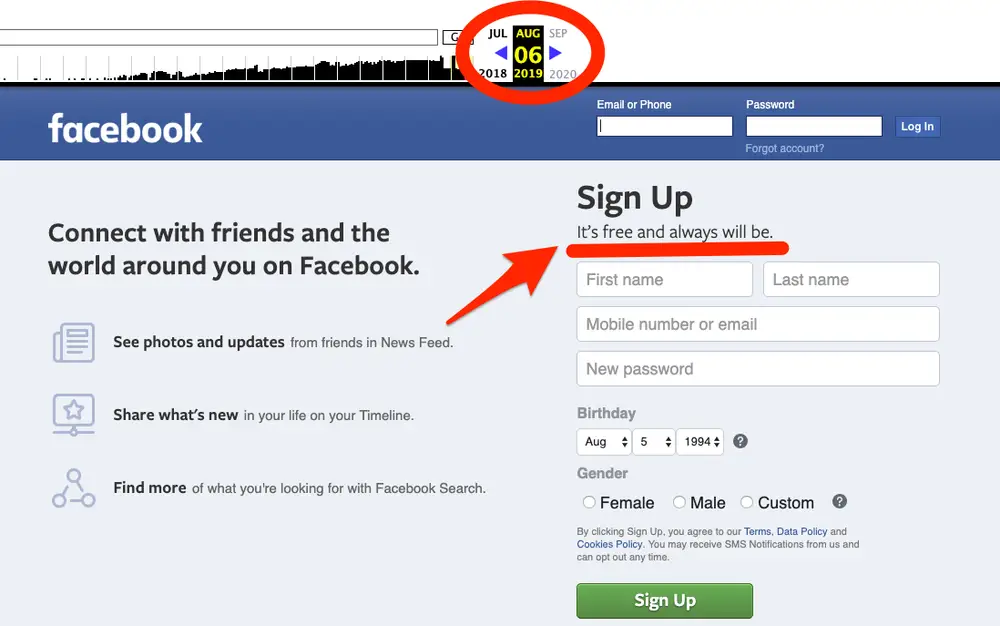Other than being completely obsolete, it seems Meta (or Facebook, for those stuck in happier times) has a new thing going on for them; no, they are not releasing a statement on whether Mark Zuckerburg is an alien or not (yet).
They are going to launch a paid subscription service, wildly contradicting their own slogan they touted for years (up till 2019) that the site was “free and always will be”.

But, what do we know about business?
Facebook & Instagram Also Going to Let Users Pay for “Verified Accounts”
This seems to be a case of “monkey see, monkey do” as Meta announced just recently that Meta-verified users would have to pay around US$11.99 per month for web users and US$14.99 for IOS or Android users, following Twitter, who announced that Twitter Blue (their own subscription service) will be priced at US$11.
Twitter isn’t the first to have a paid subscription service as other social media apps like Snapchat and Telegram have their own. But Twitter Blue, unlike the other two we mentioned, was an absolute failure, or as their owner, Elon musk would say, Big L.
His initial attempts were thwarted when a spew of fake accounts, possibly impersonating actual official accounts, scared advertisers and cast doubt on the future of Twitter. Musk was then forced to suspend the effort temporarily before launching it once again in December.
Zuckerburg is taking a page out of Musk’s book and launching it in Australia and New Zealand this week first, just to feel things out a bit.
Authenticity and Security (and Money?)
This paid subscription service will let users verify an “account with a government ID, get a blue badge, get extra impersonation protection against accounts claiming to be you and get direct access to customer support”.

Zuckerburg wrote in his Facebook post that this new feature is about “increasing authenticity and security across [their] services”. And while there would be no changes to accounts on Facebook and Instagram that are already verified, only those age 18 and above will be allowed to subscribe. Unfortunately, there isn’t any news on whether this service would be available for businesses.
There was also no indication on how Zuckerburg planned to price his subscription service in countries where users can’t pay US$11.99 a month, or in cash-based economies where they may have fewer ways to pay Meta for such a service.
So, is There a Future for Facebook?
You can’t really blame netizens for being suspicious as Facebook helped establish the dominant model of large platforms, which collect users’ personal data to sell to advertisers despite its “free services”. This paid subscription service could be another way to get more personal data, including your government ID.
Apple also introduced regulatory changes, which definitely restricted the ability of social networks to collect data and sell advertising, impacting the revenue of Meta greatly.
Another, more likely reason, was that in 2022, Meta saw a decline in their ad revenue for the first time since 2012.
Even though the California-based group recently announced that the number of Facebook users hit two billion for the first time, inflation and fierce competition from other apps like TikTok were factors that made sure that even two billion users were not enough to bring in as much revenue as one would think.
Hello TikTok, Goodbye, Facebook
There is no surprise that TikTok has been making waves in the social ,edia industry, seeing as it is now the most downloaded app in the world last year
It surpassed its older counterparts like Facebook, Instagram and Youtube when it was first introduced to the world in 2018.
Compared to Facebook’s 2.1 illion users in 2022, Tiktok’s 755 million users may seem measly, but its appeal towards the younger generation makes it a lot more valuable, prompting many platforms to try to mimic it—with little to no success.
Meta itself invested billions into Reel, its own TikTok dupe but it couldn’t catch up to the Chinese platform. A Meta whistleblower, Frances Haugen, leaked internal documents in 2021 that stated that the main priority of both Facebook and Instagram is retaining young users.
Maybe It’s Not for Facebook or Instagram?
A while back, Meta announced their plans for Metaverse, a virtual reality that Zuckerburg believes will be the next frontier online. The company is under pressure for making such an ambitious statement as well, clearly seen when the company’s share price actually dropped by two-thirds over 12 months. Fortunately, the stock has recovered in 2023, but not fully.
Meta also just laid off about 13% of its staff, currently the largest worker reduction in Meta’s history. This is inevitable, it seems, as layoffs are an unfortunate by-product of redundancies announced by tech companies once they hit an economic standstill, or decline.
You can watch this video to learn more about this phenomenon:
Though this seems bleak for Meta’s future, there is no doubt that your annoying auntie would still be sending you sketchy Facebook posts warning that COVID-19 is a hoax, and Donald Trump is Singapore’s next president.
Would you be jailed for being half-naked in public? Well, the answer will shock you. Seriously. Watch this to the end and you'll understand:




